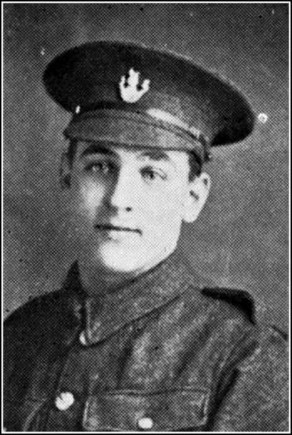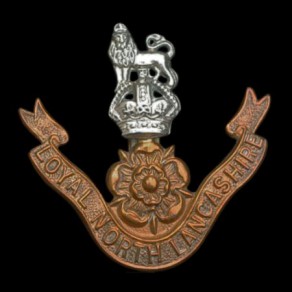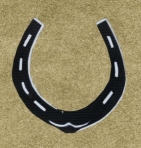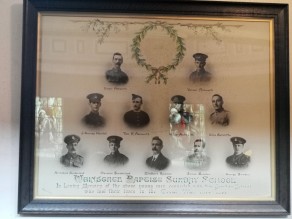
14 May 1915
A “BARLICKER’S” NARROW ESCAPES
A letter from the trenches has been received by Mrs. Sutcliffe, the mother of Private Ellis Sutcliffe, of the 1st Battalion, ‘B’ Company, of the Loyal North Lancashire Regiment, with the British Expeditionary Force in France. The writer was formerly employed in a Barnoldswick mill. His epistle says:– “I have had a taste of the firing line. I have been in a day or two, but now we have been relieved and are having a few days’ rest. I have seen Jack (a friend), but we are not in the same Company, though we see one another pretty often. We shall be going back to the firing line in a few days. It is a matter of keeping your head rather low. But the bullets are nothing compared with the ‘Jack Johnsons’. You would think it was a ton of steel coming. When we came out of the trenches our Company had no casualties, though there were many near scrapes. A part of a shell hit me on the foot but it did no damage. We have just had our ‘fag’ issue and I am going to tell Mr. ----- to send me some. We are expecting having a hot time shortly. You can see crosses here representing graves all over the battlefield.”
(‘Jack’ is a friend named Jack Greenhalgh, who enlisted at the same time. Both young men lived in Arthur Street, Barnoldswick.)
21 May 1915
TWO BARNOLDSWICK PALS WOUNDED
New has reached Barnoldswick this week that two local lads, Pte. Jack Greenhalgh and Pte. Ellis Sutcliffe, who were ‘pals’ together in work and play, have been wounded within a few days of each other at the Front.
Both were private in the Loyal North Lancashire Regiment, and lived with their parents in Arthur Street, off Gisburn Road. Private Greenhalgh was previous to enlisting a weaver at Messrs. Brooks’ portion of the Westfield Shed, and Private Sutcliffe was formerly a weaver at Messrs. Baxters’ Bankfield Shed. They both enlisted at Colne a few weeks before Christmas, Sutcliffe having had a little previous training in connection with the local Territorial forces. They were stationed at Felixstowe, and after preliminary training with the reserve battalions they left for the Front nearly two months’ ago. Greenhalgh was the first of the two comrades to receive wounds, being hit with a bullet in the arm whilst in the trenches. He is now in a military hospital at Chatham. Sutcliffe received his wound in a bayonet charge, and had a rather exciting experience, having lain a considerable time in the German trench. He was bayoneted in the thigh and also wounded in the leg. Private Sutcliffe is believed to be in a military hospital in France.
04 June 1915
THE ‘PIONEER’ AT THE FRONT
That the ‘Pioneer’ is appreciated in the trenches is abundantly proved by the contents of three letters received by the Rev. R. Anderson, pastor of Gisburn Road Congregational Church, Barnoldswick, who is constantly in communication with members of his congregation who are in the King’s service on sea or land.
The first letter is written from the Faversham Infirmary, Kent, by Private Jack Greenhalgh of the 1st Loyal North Lancashire Regiment, who was wounded in one of the recent great battles, a conflict in which other local lads suffered. Writing with his left hand, in large, uneven letters, Private Greenhalgh says:– “My arm is a lot better but it will be a long while before it is right. I got hit with shrapnel shell. I had been laid on the ground between the German lines and ours for ten hours before I was wounded. I was glad to know Ellis (Private Ellis Sutcliffe) had not been killed, but sorry he has been wounded in two places. Hope he will soon be right.”
Private Ellis Sutcliffe, the soldier referred to in the above letter, was a chum of the writer in the Loyal North Lancashires, and is the son of Mr. and Mrs. Sutcliffe of Arthur Street, Barnoldswick. Some of his letters have previously appeared in the ‘Pioneer’ columns. Writing from the Royal Infirmary, Edinburgh, he says:– “I see you had (from the ‘Pioneer’ report) a fine day on Whit Monday, and in the sports I see the Sutcliffe family made their name good in the prize list. The doctor says my wound is looking fine. I told him I wanted it to, for I am dying to have a look round. When we are able to walk they take us on motor trips. I didn’t know that Jack Greenhalgh had got wounded till the other day. A lad writing home to his mother gives a good account in the ‘Pioneer’ of how the battle that I was wounded in was started. He is an Earby lad, but I am sorry that he has now got killed. I shall never forget the three hours I was laid on the battlefield when I was wounded, for they seemed nearly a week. It was the worst experience I have ever had, and if I hadn’t the presence of mind to get into a shell hole I should never have got out of it. If I had been lying down in the open I should certainly have been blown to pieces, for shells were bursting every minute. It was dangerous there, so I made up my mind to get to the trenches somehow, as I knew it was a matter of life or death. As luck would have it, after a hard struggle with our barbed wire I managed to get back, and was helped over by one of our ‘Jacks’ and the first thing I did was to have a smoke. This just gives you an idea of the worst time of my life.”
The third letter is from Private Ted Isherwood, who is a stretcher-bearer with the 1st 6th Duke of Wellington’s Infantry Brigade, West Riding Division, France. He says:– “Received postcard and paper all right. Saw report about Greenhalgh and Sutcliffe. They were soon in action, having enlisted some time after me. There was some excitement on Monday (May 27th). The Germans had sent a good many shells during the day, which came fairly near to us. I was in the dressing station at the time. Half of us are there, whilst the other half are in the trenches, a state of affairs which is reversed every few days. The Companies do the same thing. After the German shells came our turn, though out artillery had given them some ‘hot stuff’ during the day, but they gave them more at night. We were almost prepared for bed when there came a crash of artillery fire from our own guns, and we found as good a place as possible to screen from their return fire. It was a fine sight. The murderous fire of our guns swept the horizon and fairly shook the place. It didn’t last very long, and we returned to bed, but they started another bombardment, and again we came outside, but getting used to it some of us returned and had some sleep whilst the shells thundered and screamed over the farm which was our billet. I wouldn’t like to have been at the German end of it.”
30 March 1917
SUTCLIFFE – March 15th, from gunshot wounds, at Basrah, on the Tigris, Mesopotamia, Pte. Ellis Sutcliffe, of the Loyal North Lancashires, son of Mr. and Mrs. Abraham Sutcliffe, of 8, Arthur Street, Barnoldswick, aged 21.
30 March 1917
TWO BARNOLDSWICK MEN KILLED IN MESOPOTAMIA
Remarkable Family Parallel
A striking parallel in the history of two Barnoldswick families is presented in connection with the fate of two Barnoldswick soldiers whose deaths have been officially reported this week from Mesopotamia.
Pte. Peter Wilson, son of Mr. and Mrs. Geo. Wilson, 8, Edmondson Street, was killed in action on March 7th. He was 25 years of age and unmarried. A well-known amateur footballer, he enlisted in August 1914 in the East Lancashire Regiment and took part in the Gallipoli campaign, where he was wounded. After recuperating he was drafted out to France, where he was again wounded during the big push on the Somme front on the lst Ju1y last year. After a few months in England he was sent out to Mesopotamia in October, and the family have received no news from him since December last, when he wished them all a Merry Christmas and a Happy New Year. Mr. and Mrs. Wilson have four other sons in the Army, one of whom (Sergeant J. T. Wilson), has been awarded the Military Medal. He was invalided home suffering from frostbite, and is still undergoing special treatment at Manchester. Two other sons are still in France and one in training.
Pte. Ellis Sutcliffe, Loyal North Lancs. Regiment, who died from gunshot wounds at Basrah (Tigris) on March 15th, was one of five soldier sons of Mr. and Mrs. Abm. Sutcliffe, 8, Arthur Street. He was 21 years of age. Enlisting immediately after the outbreak of war, he participated in three of the main theatres of the struggle, being wounded at Neuve Chapelle in May 1915. After treatment at Edinburgh, he was at home for a short period before being sent out to the Dardanelles, were he suffered from bad feet and went into hospital at Cairo. He left Egypt shortly before last Christmas for Mesopotamia; the last letter received from him being dated January 14th. Of the four brothers of deceased, Pte. William Sutcliffe, R.A.M.C. (Military Medalist) is now recovering from wounds in a Manchester hospital; one is in France; one in Salonika, and the other in training at Stafford.
18 May 1917
BARNOLDSWICK FAMILY’S SECOND BEREAVEMENT
The death has been reported from France of Pte. Joseph Sutcliffe, Notts and Derby Regiment (Sherwood Foresters). He was 19 years of age and the fourth son of Mr. and Mrs. Abm. Sutcliffe, 8, Arthur Street, Barnoldswick, another of whose sons (Pte. Ellis Sutcliffe) was killed in Mesopotamia on March 16th last. Three more are in the army, Pte. Willie Sutcliffe, R.A.M.C., has just been discharged from hospital after being wounded in the right leg and right arm, and is now at home on furlough; another is in Salonika, and the youngest in training at Stafford. The news was conveyed to the family in the following letter:–
British Expeditionary Force, 8/5/17.
“Dear Mr. Sutcliffe, – It is with the deepest sorrow that I have to write to inform you of the death of your son, Pte. J. Sutcliffe, during a recent action, and my sympathy is extended to you in your bereavement. One of the cheeriest men in the company under all conditions, your son was greatly respected by everyone, and his untimely end has come as a great blow to all who came in contact with him. We came under heavy machine gun fire and your son was hit and died almost immediately. He has, with others, received a decent burial and we can only now mourn his loss – a loss which can never be replaced. The one consolation however, is derived from the fact that he died doing as so many others have done, his duty as a British soldier, with courage and determination. We are all struggling for a great end, and a worthy object. Sacrifices are made willingly and with the courage and sense of duty which your son recognised as essential to all concerned in the great adventure. With deep sympathy, I am yours truly, H.C. Hearne, Second-Lieutenant for O.C. ‘C’ Company.”
Pte. Sutcliffe enlisted just twelve months ago. He was connected with the Congregational Church and a teacher in the Sunday School. Before joining up he worked as a weaver at Messrs. Whiteoak’s, Westfield Mill.
03 May 1918
CRAVEN AND THE WAR
Third Son Killed
Pte. Fred Sutcliffe (Leicestershire Regiment), youngest son of Mr. and Mrs. Abraham Sutcliffe, 8, Arthur Street, Barnoldswick, was killed in action on March 21st. He was 19 year of age and went to France in January last. Two of his brothers lost their lives earlier in the war, and two are still serving.










No comments yet.